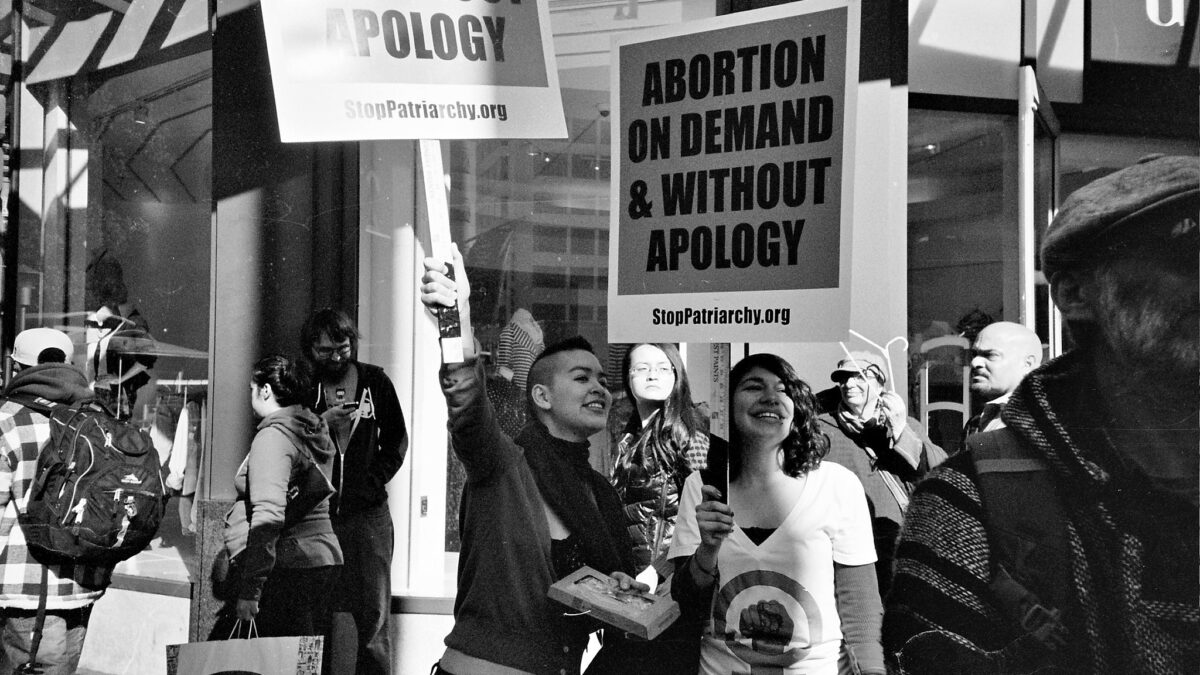If you own a fainting couch, now might be a good time to list it for sale. Given the pearl-clutching panic currently on display among the pro-abortion crowd, you should make a pretty penny.
Notwithstanding the hysteria that has ensued in the wake of the U.S. Supreme Court’s Dobbs v. Jackson ruling effectively overturning Roe v. Wade, not much has changed. Abortion is still widely available in this country and will remain so for the foreseeable future. Dobbs has not banned abortion in the United States, only given it to the states to regulate as they see fit.
Still, perhaps the Chicken Littles are on to something. Let’s briefly consider what did and didn’t change when the court handed down its decision on June 24.
What Dobbs Didn’t Change
If you want an abortion in this country, you can get one. Yes, trigger laws have led to more than a dozen states either banning abortion or beginning the process of doing so.
But even if you live in one of those states, the pro-abort contingent is rushing to make sure you are aware of all the ways you can still obtain an abortion: by traveling to a state where it is allowed, by ordering abortion pills from an online pharmacy, or by purchasing them from an overseas provider. And companies like Amazon and Citigroup have promised to help their employees who want abortions to get them. It helps their bottom line, after all.
But more important than the ongoing availability of abortion is the continuing desire of women to obtain them. One Supreme Court case doesn’t alter people’s beliefs, nor does it change their hearts. As long as there are women who want to get abortions (and men who pressure them into it), the scourge of abortion will remain.
What Dobbs Did Change
Why, then, the celebration? If abortion is still with us, why are those in the pro-life cause so jubilant?
Because while in one sense, nothing has changed — not the basic availability of abortion in the United States, the hearts and minds of those who promote and seek it, or the greed of those who will provide it — in another sense, everything has changed. No longer is the United States a country where abortion on demand is the default. No longer is the federal government in the express business of advocating for the “right” of a woman to have an abortion while ignoring the right of the child in the womb to live.
“Roe’s defenders characterize the abortion right as similar to the rights recognized in past decisions,” the opinion explained, “but abortion is fundamentally different, as both Roe and Casey acknowledged, because it destroys what those decisions called ‘fetal life’ and what the law now before us describes as an ‘unborn human being.’”
The Supreme Court’s refusal in Dobbs v. Jackson to continue a 50-year-old policy of preventing states from regulating abortion as they see fit is not going to lead to an immediate and wholesale change in the way Americans view abortion. But history shows that governments do affect the way people live.
How Dobbs Could Have a Generational Influence
Whether or not one thinks Prohibition was a good policy, the fact is that it resulted in Americans drinking less. Recent studies show marijuana use has increased in the states in which it has been legalized.
Other historical examples of how government policy has shaped behavior come from such things as seat belt laws and smoking. State laws requiring seat belts have resulted in people wearing seat belts (and thus dying less often in car accidents). State laws regulating the sale of alcohol and cigarettes to minors have made it harder for minors to drink and smoke, and governmental campaigns about the dangers of smoking have resulted in fewer people smoking.
Americans like to think of ourselves as rebels and rugged individualists, but we are largely law-abiding citizens who respect our government and do what it says. Elections have consequences.
It’s going to take generations for us to see the effects of Dobbs on the number of abortions performed in the United States. But while we are waiting for those effects to materialize, there are some for whom Dobbs will change everything today, tomorrow, next week, next month, and next year.
Because of this ruling, there will be babies born who otherwise would not have been. Their lives will be a gift and blessing to the world, regardless of whether the world realizes it. Given the demographic alarms sounding about population decline, this welcome realization may well come sooner than later.
More than ever, it is the duty of pro-life Americans to uphold all children as the blessing they are by doing whatever we can to care for them and to support their parents, whether biological or adoptive. As pro-life organizations continue working for a recognition of the sanctity of life by every person in every place, the care of that life at all its stages and the promotion of pro-natalist policies become even more essential elements of our work.
Death Pangs
Those who are making big money off of the abortion business are naturally going to scream about this ruling. Their screams are the screams of death as they face the realization of their increasing irrelevance. We owe them nothing.
But the screams of those who are losing what they see as their necessary access to abortion are the screams of fear. Those of us who understand that life is a sacred gift from the Creator of the universe must not grow weary in sharing that understanding, in love, with those who need to hear it.
Meanwhile, if anyone from Planned Parenthood is reading, I have a fainting couch for sale.








